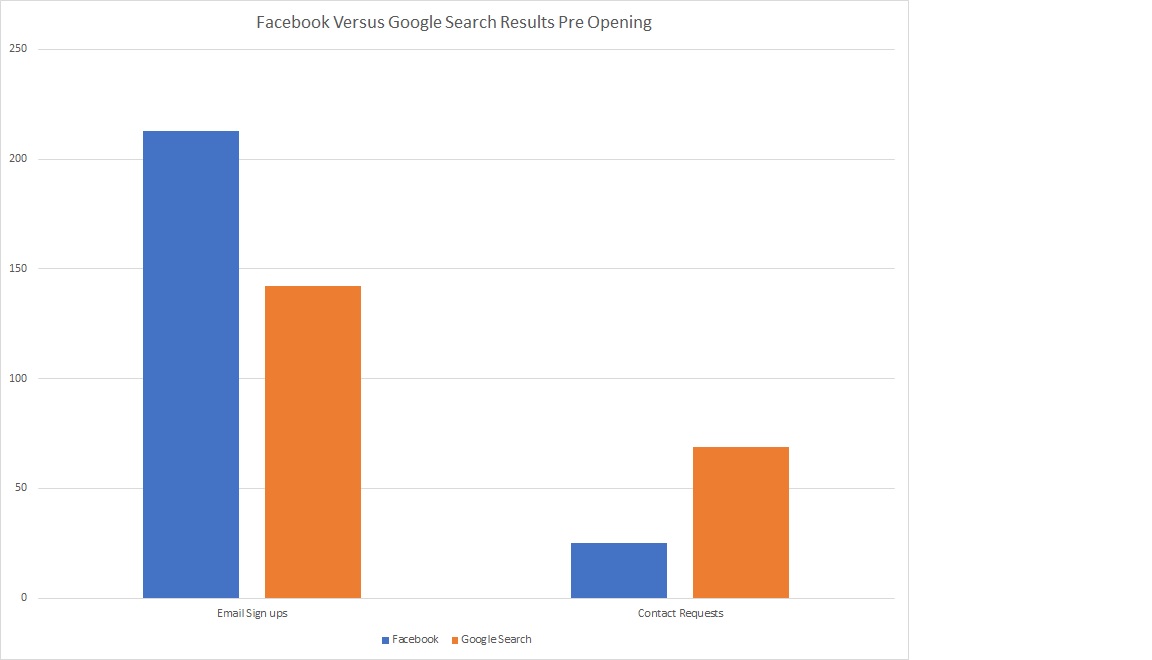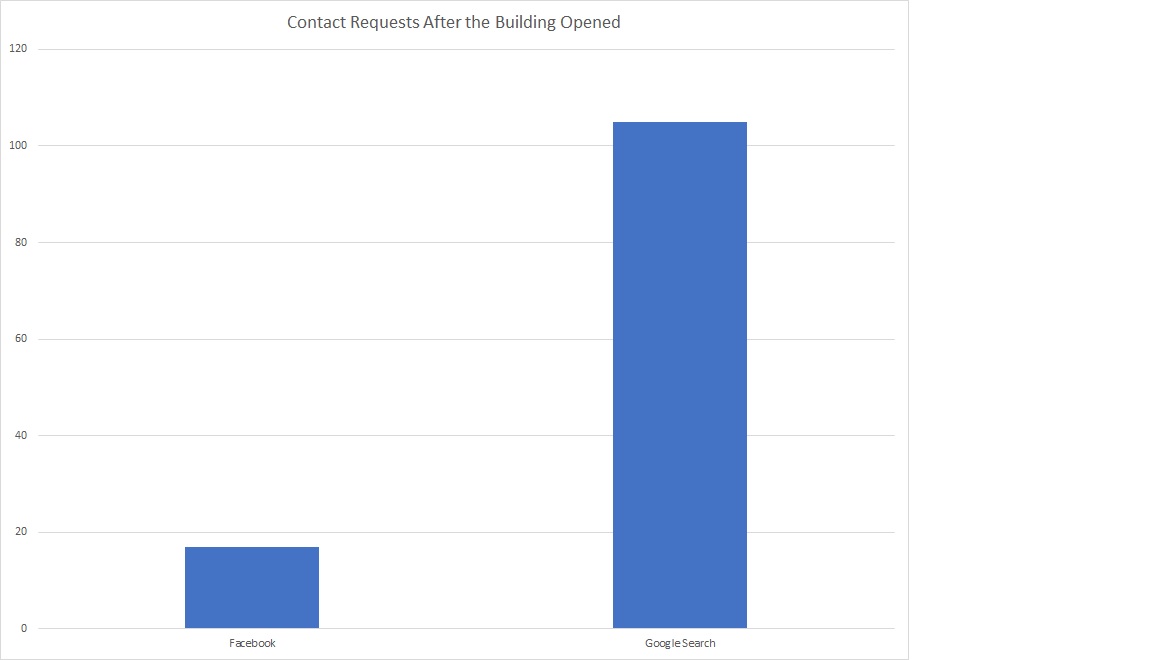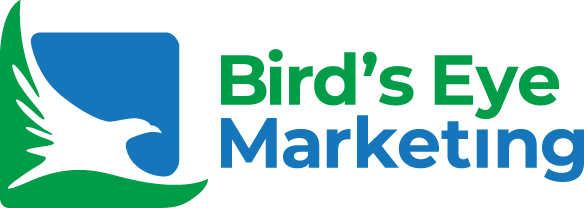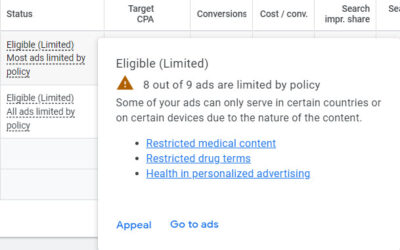Google and Facebook are two of the most powerful digital advertising platforms available to businesses. Both reach huge population segments and operate on a ‘pay per click’ basis, where advertisers only pay when the user clicks on their advertisement. If the user doesn’t click, the advertiser doesn’t pay.
I manage the Google and Facebook Advertising accounts for several customers, and I have seen both platforms succeed and fail. Here’s my take on what works and what doesn’t, based on the data I’ve seen from my customers’ campaigns.
Buyers and Browsers
Which is better, Facebook or Google? I’m asked this question almost weekly.
My response, in a nutshell, is ‘it depends.’
Facebook is exceptionally good at finding browsers—those who are considering different ways to resolve a problem or obtain a desired outcome.
Google is exceptionally good at finding buyers—those who have decided they want to apply a specific solution to resolve a problem or obtain a desired outcome. The buyers have determined how much money and time they will apply to achieve their outcome.
Just so we are clear in my definition; there are two states of mind; those who:
- Are considering different solutions; and,
- Have decided on a specific solution and budget.
Attracting Browsers
Attracting a browser to your website is a good thing. They may subscribe to your mailing list, bookmark your page, or otherwise engage with your site. Email marketing is very powerful and is a very high-converting traffic source. The caveat is that the business must be committed to continuous email content generation that nurtures the email list toward purchase.
Attracting Buyers
Attracting buyers is also good because they may choose to give you their money. Buyers tend to search with specific intentions. For example, they may search for an apartment in Westboro (neighbourhood), rather than an apartment in the City of Ottawa, which contains the Westboro neighbourhood.
Best of Both Worlds: Use Both Google and Facebook Advertising
In a perfect world, businesses would have the resources to advertise on both Facebook and Google. Facebook would pull the masses and generate email signups, while Google would bring the buyers to your door.
For a few of my customers, advertising on both platforms was possible, which allowed me to determine how well these platforms worked together. Here’s one example one of my customers experienced:
Facebook Vs. Google Mini Case Study
Hintonburg Connection is a new premium high rise apartment building in Ottawa’s Hintonburg neighbourhood. The building is professionally managed by Colonnade BridgePort.
While the building was under construction, the advertising objective was to build an email subscription list to target potential residents when the building opened. A secondary objective aimed to get subscribers to make a phone call or submit an email to a member of the leasing team immediately.
For the email subscription goal to be considered complete, a subscriber had to provide their name and email address.
For the contact request, there was considerably more commitment required on the part of the subscriber. The Subscriber needed to fill out a form with their name, phone number, email and desired suite type. Plus, there was the expectation the person would spend time on the phone speaking with the leasing agent.
Facebook ads were tracked in Google Analytics using UTM codes. Google Ads were tracked in Google Analytics with Auto Tagging turned on.
Pre Opening
We advertised on both Facebook and Google. Spending slightly more on Google search advertising, and the geographic targeting was the same for each.

Facebook excelled at getting the email signups. Google excelled at getting the contact requests—remember it’s harder to get contact requests than email signups.
Post Opening
In October 2019, Hintonburg Connection opened and began accepting live viewings with a leasing agent. The email list signup was disabled, and the primary advertising objective was to get people to book an appointment with a leasing representative to view the model suite.
We kept the spend and geo targeting the same for both Facebook and Google Search advertising. The results were stunning:

Google’s performance at generating sales leads was significantly stronger. The cost per sales lead was 35% lower than Facebook.
Other observations of Facebook versus Google
- Facebook brought a higher volume of website visitors that Google.
- Facebook brought more new users to the website than Google.
- Facebook had a higher bounce rate (percentage of people who viewed landing page and left the site) than Google.
Application of the Experience
When it was time for Colonnade’s next apartment building opening, 1960 Scott Street, we applied our experience. During the pre opening phase of gathering email subscribers we spent more heavily on Facebook. And then as we switched to actively leasing units, we applied more spend to Google Search Ads.
Dental Office Stopped Facebook Advertising
A small dental office I work with was doing both Google search ads and Facebook ads. After six months, they stopped the Facebook ads because their cost per lead was too high (form completion was $108, versus Google Search at $59).
They too experienced high traffic volumes and bounce rates.
Getting the Word Out Quickly on Facebook
Another customer used Facebook to announce a new product. Their goal was to reach as many people as quickly as possible about the new product. Facebook reached far more people much faster than Google.
Facebook Advertising worked better on softer commitments like email signups
My experience advertising with Google search and Facebook has shown me that Facebook is particularly good at reaching a lot of people quickly. It’s good at driving traffic to your website and getting people to make small commitments, like subscribing to an email list.
In short: Facebook advertising generates a lot of traffic and small commitments, but results in very few leads or sales.
Why Facebook excels at smaller user commitments
Typically, Facebook users leisurely scroll through their feeds to see what friends are doing, and to relax. They click on ads that intrigue them, but most are not in the mood to do a lot of thinking and analyzing, or especially to make large commitments, such as committing time to go to a leasing office or make a purchase.
If the Facebook user has an interest, they will complete a quick mailing list form, because that fits with their relaxed mood.
Google Search Advertising works better on the ‘Money Commitments’
It’s been my experience with customers advertising on both Facebook and Google that Google brings in the money. The user is typically ‘Googling a problem’ because they are looking for a solution. In this way, they are in the mood to listen, especially when a seller has the solution to their problem. And when they find the solution, they’re more willing to make that bigger commitment or purchase.
Is Google Search Advertising Better than Facebook Ads?
No!
These two platforms are built for different objectives. In my opinion, Facebook excels at softer commitments like email signups and getting large volumes of people to your website quickly. Google search is made to get buyers to find you. It excels at getting people who are actively searching and ready to buy your product or service to your website.
The key for small- and medium-sized businesses with restrictive budgets is to make it clear what they want users to do after they land on their website.
Why decline so many Facebook advertising request
Unfortunately, many businesses lack the resources to advertise on both Facebook and Google. Their budgets force them to choose one over the other. In order for a Facebook advertising campaign to be successful, a business needs to have the email or content marketing in place or be willing to build it. That’s a significant commitment, which can be difficult on a small budget. In my experience, those who want Facebook advertising but don’t have an email infrastructure will struggle.




